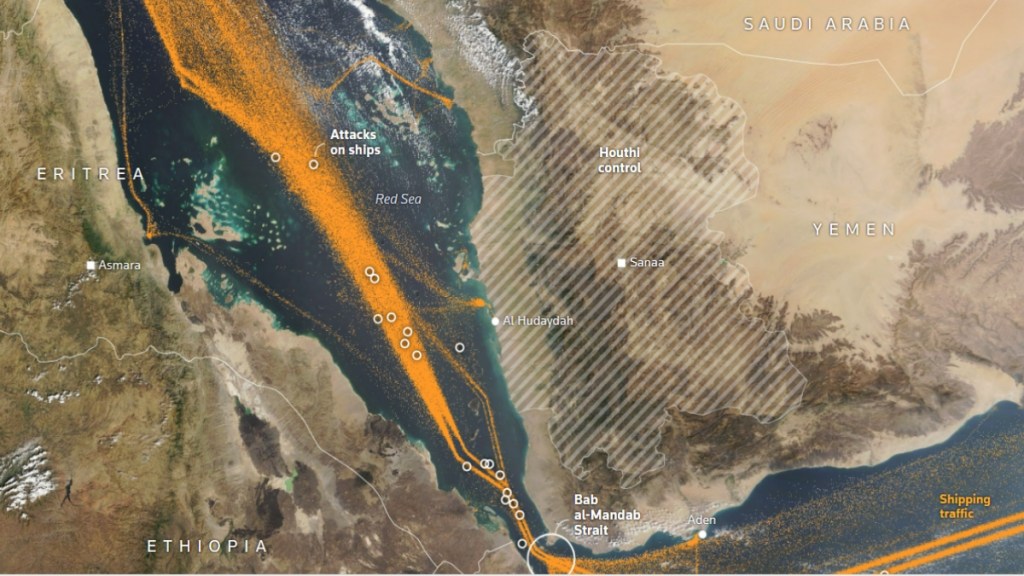By Dr Waiel Awwad
While negotiations are underway for a potential ceasefire, including discussions on a pause in the conflict, the exchange of prisoners, and the simmering tensions in the Arabian Sea and Lebanon, the situation takes a concerning turn. The United States exacerbated the ongoing conflict by launching attacks on Syria and Iraq, actions that defy the established mandate of its troop presence in Iraq. These military operations resulted in significant destruction of property and casualties, affecting numerous civilians in both countries. There are reports that the USA has destroyed the ammunition and bases of Alnbabr Operation Command and headquarters of popular front (Al Hashd Alshabi) forces in al Anbar province, fighting the terror organization ISIS. The Iraq government is asking the US to put a timetable for withdrawal from Iraq territories and the anti-Jordan sentiments are boiling in the streets of Syria and Iraq because it allowed its territories to be used by US forces to launch the attacks on them. If the USA pulls its troops from Syria and Iraq there will be more stability and Syrians will be able to reconcile and settle their differences to establish a national government after the re-admission of Syria into the Arab and Islamic fold.
The American assault on a heritage site at Al-Mayadeen drew strong condemnation from Syria, which also denounced the illegal occupation of Syrian territories by the United States and accused Washington of reviving the terrorist organization ISIS in Syria and Iraq. Meanwhile, geopolitical tensions persist in the region, encompassing situations in Syria, Yemen, and Iraq, and the possibility of new developments that could further escalate the complex dynamics of the area.
The military intervention in Yemen by US and UK forces is poised to heighten security tensions that engulf the whole region. It will lead to the militarization of the Red Sea and endangering their citizens and interests in the region. The Yemeni resistance forces Ansarullah vowed to take revenge and ban US-UK allies’ ships from passing through the Red Sea.
“The escalation of security tensions in the Red Sea could have significant implications for India’s energy security, maritime operations, diplomatic relations, trade, and regional stability, highlighting the need for a comprehensive approach to address these challenges.
The aggression in Yemen has the potential to exacerbate and expand, fuelling concerns of a broader conflict encompassing Gaza, Lebanon, Syria, Iraq, and Iran. Such developments could profoundly impact economic conditions, including oil prices, economic reforms, and diversification efforts, posing a threat to the political stability of countries in the region and impeding global efforts to tackle economic challenges in the post-pandemic COVID era.
The region is profoundly influenced by broader geopolitical dynamics that actively shape the political landscape of the Middle East (West Asia). China and Russia, asserting their influence in the region, particularly following the Iran-Saudi Arabia rapprochement and the expansion of BRICS nations, are closely monitoring Western intentions and striving to diminish their dominance by fostering instability and conflict. There is palpable discontent among Arab populations regarding American steadfast support for Israeli actions against Palestinians. Indeed, the presence of the US in the region is increasingly viewed as a liability by host countries, and in the event of further escalation, these nations housing US troops could find themselves on the front lines of conflict.”
The geopolitical landscape is witnessing significant transformations as external powers such as the USA, Russia, China, and the European Union establish new diplomatic relations and alliances, leading to a more complex and unpredictable situation. With pivotal elections looming in key countries this year, the foreign policies of each nation are poised to profoundly influence outcomes, particularly in Tunisia, Iran, the European Union, the USA, and India.
The emergence of new leaders or shifts in leadership dynamics can have profound implications for regional politics. In Tunisia, under the current president, Kais Saied, amidst economic challenges and demographic shifts, it will be intriguing to observe how the youth population influences and demands reforms.
In Iran, apart from the politics surrounding its nuclear deal and regional implications, the upcoming Majlis elections in March coincided with a challenging economic landscape, ongoing external pressures, and internal challenges from vested interests. Additionally, this year may witness a change in religious leadership, sparking curiosity about the successor to Supreme Leader Ali Khamenei, although it is unlikely to significantly alter Iran’s regional policy.
The humanitarian crisis in Sudan has largely faded from international attention, even as the civil war continues to simmer.
In Gaza, the situation is dire as the Israeli blockade severely restricts the movement of humanitarian aid, leading to warnings from relief agencies of an impending catastrophe. More than 2.4 million civilians are suffering from starvation, famine, and displacement, with unabated violence destroying homes and infrastructure. Access to clean water is scarce, and medical supplies are insufficient, exacerbating the dire circumstances. The Zionist movement’s strategy has only intensified insecurity for both Palestinians and Israelis.
Despite global solidarity with the Palestinian cause, the suffering of Palestinians persists, as powerful nations align with Israel’s interests. Only when public opinion forces ruling elites to exert pressure on Israel will the cycle of violence come to an end.
The author is a Senior International Journalist.
Disclaimer: Views expressed are personal and do not reflect the official position or policy of Financial Express Online. Reproducing this content without permission is prohibited.

